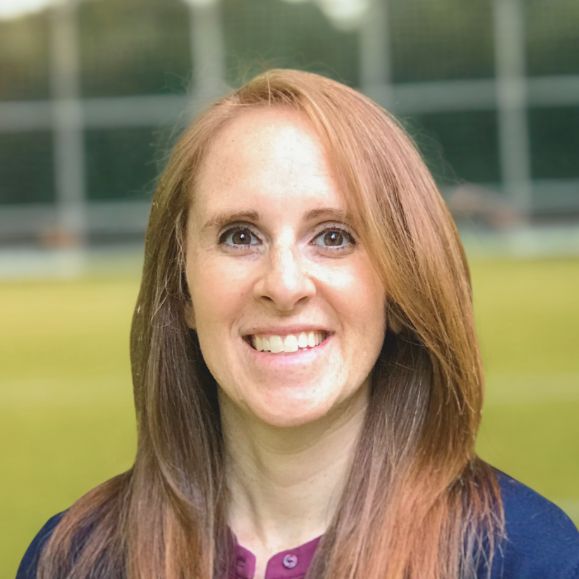Why Local Care Matters for Social Anxiety
Finding Social Anxiety therapy in Indianapolis means shorter commutes, familiar settings, and care that aligns with your daily life—crucial when anticipatory anxiety and avoidance can make travel a hurdle. MiResource’s directory helps you quickly match with clinicians experienced in CBT and exposure therapy for Social Anxiety, or local group therapy if you’re ready to practice skills with others. Use filters for insurance, availability, and therapy type to narrow to providers who can meet you in person or via telehealth as you build confidence. The result is easier scheduling, fewer barriers to showing up, and support tailored to the situations you face in Indianapolis.
Local fit also strengthens cultural understanding—whether your triggers involve workplace presentations, campus life at nearby universities, or social events common in Indianapolis. MiResource lets you filter for evening or weekend openings, sliding-scale options, and therapists who prioritize pacing around safety behaviors and performance anxiety. You can also sort by cultural background and specialties to find someone who gets your communication style and values. With precise filters and local matches in Indianapolis, MiResource makes starting—and sticking with—care simpler and more effective.
Local Options and Community Programs
Local resources in Indianapolis can help you manage Social Anxiety with crisis support, affordable clinics, therapy options, and peer communities. Many programs offer sliding-scale counseling, evidence-based treatments like CBT, and group settings that build confidence and skills. You can connect quickly through crisis lines, community mental health centers, or your health system. If cost or access is a barrier, FQHCs and public programs can help you find low-cost care and navigation support.
Crisis Support
Public Programs
Nonprofits & Support Groups
Universities & Health Systems
The Advantages of Seeing a Indianapolis-Based Therapist
Working with an Indianapolis-based therapist for social anxiety means you’re partnering with someone who understands the city’s social rhythms—from coffee chats on Mass Ave and gallery nights in Fountain Square to weekend crowds in Broad Ripple and Irvington. They can tailor exposure plans around real local settings, like quieter hours near Monument Circle or the Central Canal, and help navigate triggers at festivals or game days. Therapists rooted here often connect clients to support networks such as NAMI Greater Indianapolis, community center groups, and campus resources at IUPUI or Butler. They’ll also point you to city programs and wellness offerings through Indy Parks & Recreation and the Indianapolis Public Library.
In-person care is especially accessible across Indy, with IndyGo routes—including the Red Line along College and Virginia avenues—plus easy parking in neighborhood districts and garages downtown. Many clients appreciate low-stress commutes via I-465 connectors, the Cultural Trail, or Pacers Bikeshare, and plan sessions away from event traffic near Lucas Oil Stadium or the Convention Center. Local therapists can schedule brief, frequent check-ins, use real-world practices like walk-and-talks along White River State Park, and coordinate referrals within IU Health, Eskenazi Health, or Community Health Network. Shorter travel and familiar landmarks make starting, sustaining, and benefiting from therapy more manageable.
Holistic Approach to Mental Health in Indianapolis
Holistic care for social anxiety in Indianapolis means supporting your mind, body, and environment together—combining skills for managing thoughts and feelings with movement, rest, and everyday places that help you feel safe and connected. Beyond talk therapy, you can practice grounding on the Canal Walk or Cultural Trail, explore calming plant rooms at the Garfield Park Conservatory, or take a quiet stroll through the Newfields gardens. Gentle social exposure can happen in low-key neighborhood spots like Broad Ripple or Mass Ave, where you can set your own pace. These approaches help build confidence while reducing stress in real-life settings.
Indianapolis offers complementary options like classes at Invoke Studio or The Hot Room, meditation with the Indianapolis Zen Center, and peace and mindfulness programs through the Peace Learning Center at Eagle Creek Park. Community health partners such as Eskenazi Health Midtown and Community Health Network also host groups and workshops that support stress management and social skills. Green spaces like White River State Park and the Monon Trail provide accessible places to move your body and reset your nervous system, while arts and cultural events in Fountain Square offer gradual, supported social engagement. MiResource connects you with the right mix of therapists, wellness programs, and community resources in your neighborhood, so your care plan fits your goals and comfort level.
What Social Anxiety Means
Social anxiety
is a strong fear of being judged or embarrassed in social situations, which can make everyday interactions feel overwhelming. If you’re in Indianapolis and struggling with this, know you’re not alone—social anxiety can affect school, work, friendships, and daily tasks, but support is available.
About the Experience of Social Anxiety
Social anxiety is a strong, persistent fear of being judged or embarrassed in social situations, and it can happen to anyone here in Indianapolis. Common signs include worrying for days before an event, avoiding conversations or eye contact, a racing heart, sweating, or feeling shaky when around others. It can make everyday routines harder, like speaking up at work or school, going to gatherings, making phone calls, or running errands. You’re not alone—many people in Indy feel this way, and support can help make daily life feel more manageable.
How Therapy Makes a Difference
Evidence-based treatments like cognitive behavioral therapy (
CBT
) and
exposure therapy
help you challenge anxious thoughts, face feared situations gradually, and reduce avoidance so daily life feels easier. Acceptance and Commitment Therapy (ACT) and group-based CBT build resilience, teach practical social skills, and increase confidence in conversations and at work. Research shows these approaches lead to lasting reductions in anxiety and improvements in relationships and overall well-being. If you’re ready to feel more free and connected, Social Anxiety therapy in Indianapolis offers proven paths forward with compassionate, skilled care.
Inside the Therapy Process
In your first session in Indianapolis, you’ll talk through your concerns, history, and goals, and your therapist will explain how social anxiety works and what therapy can look like. Together you’ll create a personalized treatment plan with clear, manageable goals, session frequency, skills practice between visits, and ways to track progress. Ongoing sessions often use evidence-based methods like cognitive behavioral therapy, gradual exposure exercises, social skills training, and mindfulness strategies—paced so you feel safe and supported. Your therapist will check in regularly, adjust the plan to fit your life in Indy (including in-person or telehealth options), and work as a partner so you’re never facing this alone.
Answers to Your Questions About Social Anxiety
1. How do I know when it’s time to seek help for Social Anxiety?
If worries about being judged make everyday tasks—like meeting new people, speaking up at work or school, or making phone calls—feel overwhelming, it may be time to seek support in Indianapolis. Signs can include avoiding social situations, intense dread before plans, replaying conversations for hours afterward, or physical symptoms like a racing heart, sweating, or nausea. When these feelings start impacting your relationships, performance, or ability to enjoy life, therapy can help you build confidence and coping skills. Reaching out is a strong, hopeful first step toward feeling more at ease in social moments.
2. What if I don’t feel comfortable with my first Social Anxiety therapist in Indianapolis?
It’s common not to click with the first social anxiety therapist you see in Indianapolis, and that’s okay. The therapeutic
relationship
affects comfort, trust, and progress, so finding a good fit really matters. You shouldn’t feel guilty about switching—trying more than one therapist is a normal part of the process. MiResource makes it easy to compare Indianapolis options side by side so you can find someone who feels right for you.
3. How do I explain my Social Anxiety to friends or family?
It’s your choice whether to share—only talk about your social anxiety if and when it feels right for you. You might start with a simple explanation like, “I get really anxious in social situations, and it can feel overwhelming,” and choose a calm, private setting in Indianapolis where you feel safe. Set boundaries by saying what helps (“shorter plans, small groups”) and what doesn’t (“surprise gatherings, being pressured to mingle”), and let them know you may leave early or say no. You can also ask for specific support—like texting before plans or helping with introductions—and keep any details you don’t want to share private.
4. Who can diagnose Social Anxiety in Indianapolis?
Psychiatrists, psychologists, licensed therapists, and sometimes primary care doctors in Indianapolis can diagnose Social Anxiety by reviewing your symptoms and history, asking structured questions, and assessing how anxiety affects your daily life. MiResource lists only qualified, licensed providers in Indianapolis who can deliver accurate diagnoses and guide appropriate treatment, so you’ll know exactly who to turn to for help.
5. What causes Social Anxiety?
Social anxiety often develops from a mix of factors—biological, psychological, social, and environmental—and it looks different for each person. Genetics, brain chemistry, past experiences, and current stressors or pressures in your community and relationships can all play a role. It’s not a personal failing or something you’re “doing wrong.” If you’re in Indianapolis and have concerns, reaching out for support can help you understand what’s contributing to your experience and find effective care.
6. What are the biggest misconceptions about Social Anxiety?
Social Anxiety isn’t “just a phase” or simple shyness—it’s a real, treatable health condition that affects how the brain and body respond to social situations. It does not mean someone is weak or lacking willpower; it reflects a pattern of anxiety that can be improved with evidence-based care. People with Social Anxiety often want connection but feel intense fear or worry that makes everyday interactions hard. If you’re in Indianapolis, you deserve support without shame—professional help, including therapy and skills-based treatments, can make a meaningful difference.













